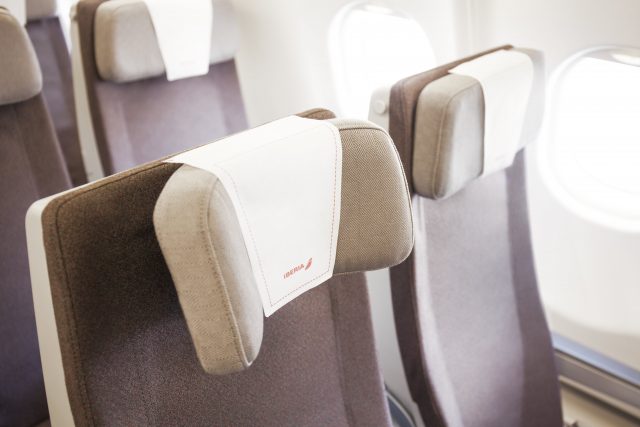
Each new generation of Airbuses that Iberia flies strives to make the inflight experience more pleasant and comfortable. But today I’d like to share with you a few tips and words of advice on what you as a passenger can do to improve that experience further still!
Eat Before and During the Flight – But Midfully
Flying at high altitude produces a small reduction in air pressure which can cause an expansion in intestinal gas (pleasant topic, I know), which can bother some people. That’s why it’s recommended to avoid gas-producing foods, in addition to eating meals that are too heavy. Iberia’s inflight menus take this into account.
Minimise Ear Popping
During takeoff and landing, changes in cabin pressure can affect the ears. If this happens to you, the way to overcome this sometimes disagreeable sensation is to try to equalise the pressure in the middle ear by chewing gum or blowing your nose (alternatively, pinching your nose and blowing softly).
Minimise Jet Lag
Caused by your body’s internal clock being thrown radically out of synch by a sudden change in time zone, jet lag is real, and can put a real damper on your first days in a long-haul destination. Depending on direction of travel (east to west or west to east), there are several tricks you can use to minimise it, including not taking a nap immediately upon arrival but toughing it out till the end of the local night. Before leaving, you can also adjust your sleep cycle a bit to conform to the upcoming new time zone. And if you’re not spending too long in that new time zone, you can also try keeping the same sleeping/eating patterns you have at home. For more in-depth analysis and strategies, including how to adjust your light exposure and activity level to mimimise jet lag, see this blog’s previous posts on the subject: Part One and Part Two.
Maximise Movement
Spending long hours seated and nearly immobile can lead some people to get swollen ankles and feet, and even increase the risk of dangerous blod clots in the extremities, particular the lower – which can show up days and even weeks after a flight. Start by stretching your legs while seated as much as possible (and for this of course it helps not to have anthing stashed under the seat in front of you) and well as stretching your upper body every so often. Suggested movement include:
- Slowly and gently incline your head from side to side while breathing evenly.
- Stretch your arms upward, trying to touch the ceiling, and maintain this position whilst breathing deeply. Then place your arms behind your head whilst exhaling.
- Squeeze your toes together whilst raising your heels, as if trying to get onto tippy toes. Repeat several times.
In addition, every so often take a little stroll up and down the passageways, even if you don’t have to walk to the loo.
Counter the Effects of Drier Cabin Air
For the most part, airline cabins have lower than average humility, which can lead to dry eyes and breathing passageways. So it’s important to stay as hydrated as possible; avoid coffee and especially alcohol even up to a day before flying; and apply moisturiser and eyedrops as needed.
Make Use of Accessories to Improve the Long-Haul Flight Experience
Iberia like many airlines provides various amenities for passengers’ comfort and convenience, such as blankets, pillows, socks, and headphones. Making use of them will definitely make your flight more pleasant!

